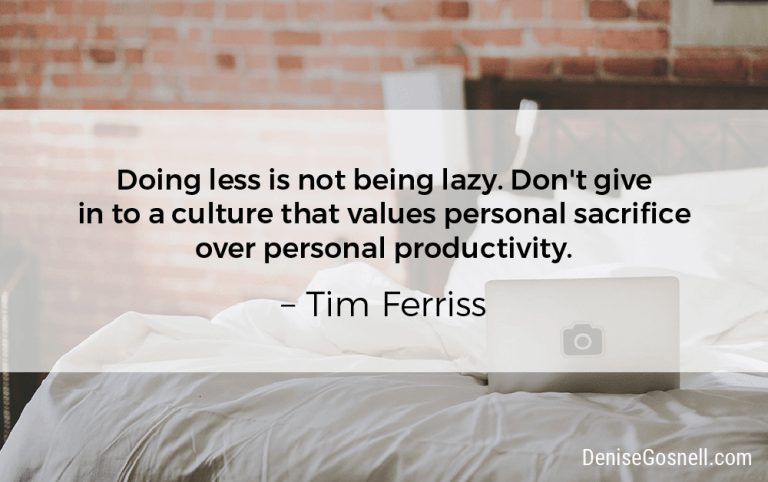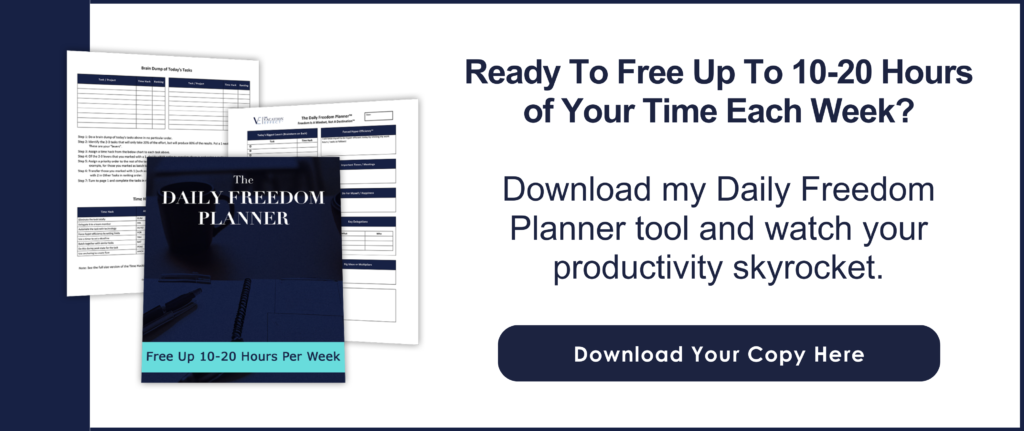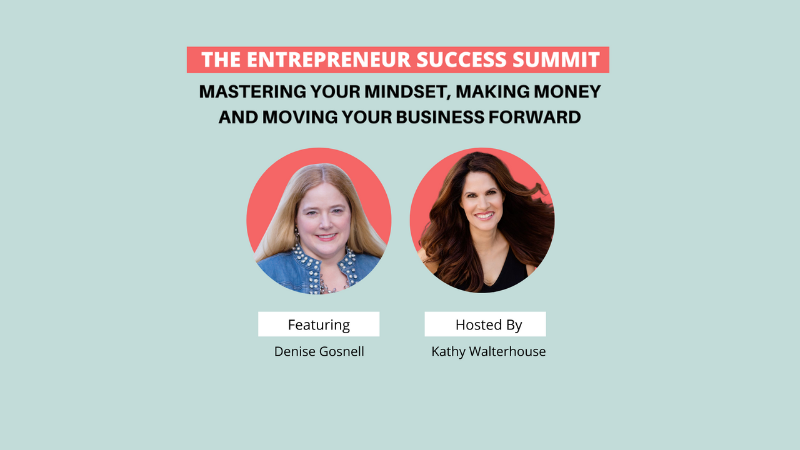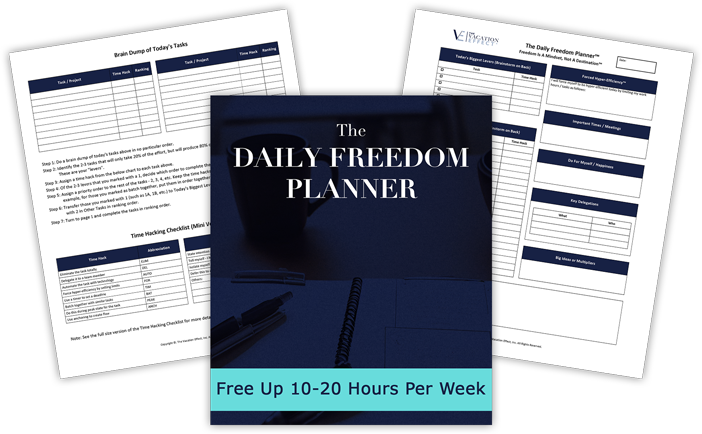Throughout history, business owners have earned admiration for their dedication to their business and their willingness to make sacrifices. However, when it comes to working hard, there’s also a point of diminishing returns. You can only work so hard before your performance begins to suffer and your success rate takes a dive. The most sensible alternative is to work smarter, not harder. Here is a look at some ways in which you can do this.

1. Complete Your Biggest Levers First
My biggest suggestion to help you work smarter is to sit down and do a brain dump on all the tasks that you need to handle today. Then, perform a Pareto Principle analysis (see article here) and identify the 2-3 biggest levers that will move your business along and produce 80% or so of the results for 20% or so of the effort. Then, complete those levers first, ideally before lunch.
Do NOT check your email as soon as you get to work. That will just suck you into the abyss of other people’s priorities, not your own.
Working smart means being productive, rather than just being busy. Anyone can make themselves busy by burying themselves in unnecessary tasks. However, by doing that, you could be causing your day to be longer and harder than necessary. Eventually, you’ll have to get back to the work that counts and by then, you may have fallen behind.
By finishing the biggest levers first (before checking email or anything else), you will have a productive day even if you get nothing else done for the rest of the day. This is the one of the the top strategies that I implemented in my own life and business that had the biggest impact.
2. Frequent Breaks
On average, our brains remain entirely focused for about 90 minutes. After that, a 15-minute break is necessary to be able to return to that fully-focused state for another 90 minutes. Going beyond 90 minutes might allow you to get more done, but at some point, your brain will begin looking for distractions. Ultimately, you’ll spend far more time in an unproductive state than if you had just taken those breaks at regular intervals.
Taking a break allows you to preserve and enhance the greatest asset that you have, which is you. Everyone wants some degree of balance, and you’ll never achieve it until you spend some time cultivating the social, emotional, physical, and spiritual areas of your life.
You can use breaks to spend some time on the phone with a friend or relative, catch up with your spouse, go for a walk or spend a few moments in meditation or prayer. Breaks are beneficial in all areas of life, and you’ll find that they can do a lot to help you avoid burnout by giving your brain a chance to re-energize itself.

Keep in mind that although 15 minutes is ideal, breaks that long may be difficult to come by in certain situations. You may have to figure out some variation that suits you better. Do whatever works and remember that the point is to incorporate short breaks throughout the day to allow your attention span to reset itself.
3. Short Naps
Research shows that frequent napping results in improved cognitive function. When memories get recorded in the hippocampus, they can still be quickly forgotten. Napping helps the brain solidify memories by moving them to the neocortex, where they can’t be overwritten. The more you have to memorize, the more beneficial this can be. In addition to memory retention, naps can also help boost creative thinking.
Another benefit of naps is that they can help prevent burnout. What many people don’t realize is that it is a signal from your body that your brain won’t be taking in any more information until you’ve gotten some rest. Naps are a great way to recharge your batteries and refresh your mind, especially if you haven’t been getting enough sleep.
4. Enjoy Nature
Spending a lot of time working can leave your body tense and the mind cluttered. Spending quality time in nature is a great way to relax and clear the mind. Taking a short walk in natural surroundings can work wonders. Although walking anywhere does provide some benefit, it may be solely physical if you’re walking through crowded streets in a busy city. In other words, you’ll get the benefits you would typically get from exercise, but the amount of attention required to navigate a busy street safely will prevent you from being able to relax and clear your thoughts.
Putting these strategies to work may be the best choice you’ve ever made. Freeing up blocks of your time enables you to enjoy more activities that don’t involve work. If your reason for working in your business is to maintain and improve your quality of life, it should be a given that working smarter beats working harder.
P.S. If you would like more information on how to work smarter and to grow by actually doing less, check out my podcast episode called: Grow by Subtraction Using Forced Hyper-Efficiency








